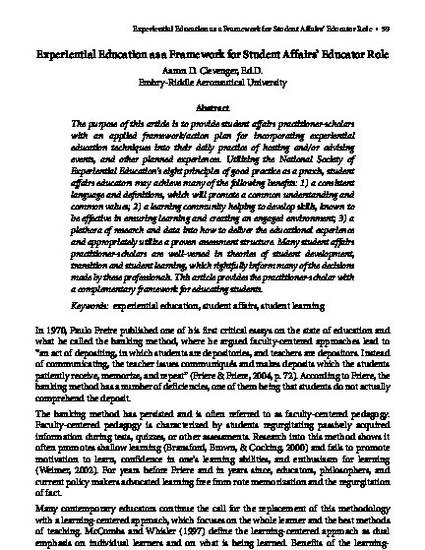
"The purpose of this article is to provide student affairs practitioner-scholars with an applied framework/action plan for incorporating experiential education techniques into their daily practice of hosting and/or advising events, and other planned experiences. Utilizing the National Society of Experiential Education’s eight principles of good practice as a praxis, student affairs educators may achieve many of the following benefits: 1) a consistent language and definitions, which will promote a common understanding and common values; 2) a learning community helping to develop skills, known to be effective in ensuring learning and creating an engaged environment; 3) a plethora of research and data into how to deliver the educational experience and appropriately utilize a proven assessment structure. Many student affairs practitioner-scholars are well-versed in theories of student development, transition and student learning, which rightfully inform many of the decisions made by these professionals. This article provides the practitioner-scholar with a complementary framework for educating students."--From the article.
Available at: http://works.bepress.com/aaron_clevenger/33/
